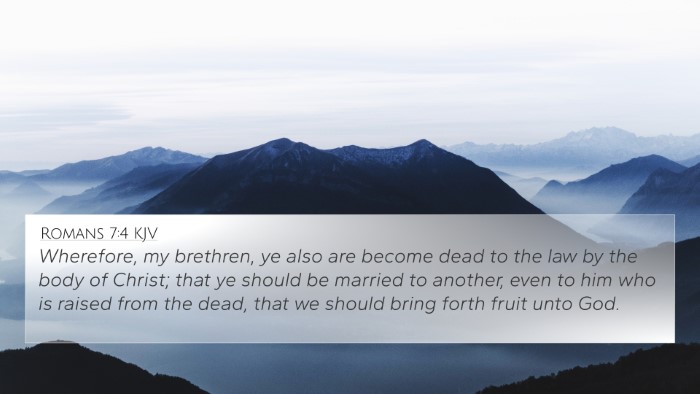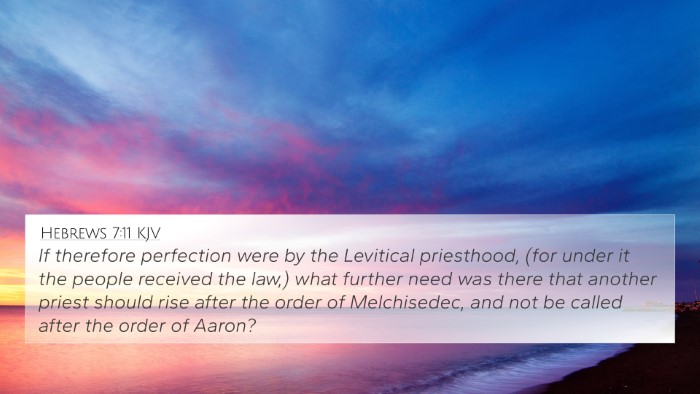Understanding Galatians 3:25
Galatians 3:25 states, "But after that faith has come, we are no longer under a schoolmaster." This verse signifies a key transition in the understanding of the law and faith within the Christian doctrine. To enhance the understanding of this verse, we will explore insights from Matthew Henry, Albert Barnes, and Adam Clarke, and also connect it with various related Bible verses.
Key Insights from Commentaries
Matthew Henry's Commentary
Henry expounds on the metaphorical use of "schoolmaster," which symbolizes the law. He states that the law was meant to guide and protect until the coming of Christ. The arrival of faith, through Jesus, transformed believers' relationship with God and liberated them from the constraints of the law.
Albert Barnes' Notes
Barnes emphasizes the role of faith in fulfilling the purpose of the law. He argues that the law was a temporary guardian, but faith leads believers directly to righteousness. This verse illustrates a crucial shift from the law to faith, where believers are no longer under its tutelage.
Adam Clarke's Commentary
Clarke interprets the passage as a declaration of freedom for believers. He maintains that once faith is established, the believer transitions from a position of being under the law (the tutor) to living freely through faith in Christ.
Relation to Other Biblical Texts
Galatians 3:25 can be interconnected with various scripture passages to deepen its interpretation:
- Romans 6:14 - "For sin shall not have dominion over you, for you are not under law but under grace." This highlights the transition from law to grace.
- 1 Corinthians 15:56 - "The sting of death is sin, and the strength of sin is the law." This supports the idea of the law's limitations and its eventual fulfillment in Christ.
- Galatians 5:18 - "But if you are led by the Spirit, you are not under the law." A direct affirmation of being led by faith rather than law.
- John 1:17 - "For the law was given through Moses, but grace and truth came through Jesus Christ." This connects to the fulfillment and transformation brought about by Christ.
- Hebrews 10:1 - "For the law, having a shadow of the good things to come, and not the very image of the things, can never with these same sacrifices, which they offer continually year by year, make those who approach perfect." It emphasizes that the law cannot achieve what faith in Christ offers.
- Ephesians 2:15 - "Abolishing in His flesh the enmity, that is, the law of commandments contained in ordinances, so as to create in Himself one new man from the two, thus making peace." This verse illustrates the unification brought by faith over law.
- Philippians 3:9 - "And be found in Him, not having my own righteousness, which is from the law, but that which is through faith in Christ." This shows the righteousness that comes from faith versus the law.
Thematic Connections and Interpretations
The thematic connection of Galatians 3:25 with other biblical texts enhances our understanding of the relationship between faith and law:
- Faith vs. Law - The apostle Paul frequently contrasts the law as a guide versus the life lived through faith, exemplifying a shift in the covenantal relationship.
- Freedom in Christ - The concept of freedom is pivotal in Paul's letters, emphasizing deliverance from the restrictions of the law through faith.
- Righteousness through Faith - The scriptures collectively emphasize that righteousness is attained not through adherence to the law but through faith in Christ.
Conclusion
Galatians 3:25 serves as an essential verse within the discourse of law and faith. Through the insights of public domain commentaries and scriptural cross-references, it becomes evident that this verse encapsulates the transformation from a legalistic approach to a grace-filled faith that defines Christian doctrine. Understanding this verse in light of others allows believers to appreciate the broader narrative of salvation and righteousness in Christ.
For Further Study
For those interested in deepening their understanding of Galatians 3:25 and the connections it has with other books and teachings in the Bible, utilizing tools for Bible cross-referencing and a Bible concordance may enhance your study experience. Engaging in a cross-reference Bible study can uncover rich layers of meaning and facilitate a comprehensive understanding of biblical themes.
Note: This study does not only provide individual enlightenment but can also serve as a foundation for sermon preparation, assisting in conveying the significance of faith as the pillar of Christian life.








